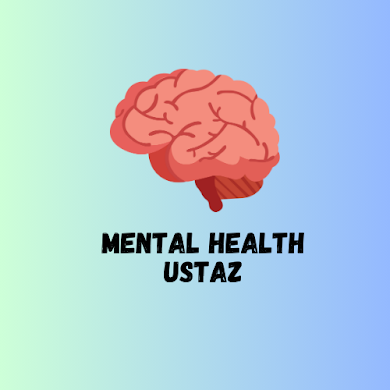Introduction: How can I cope with stress ! In today's fast-paced world, it's not uncommon to find ourselves feeling overwhelmed and stressed. The demands of work, family, and daily life can take a toll on our mental and physical well-being. If you're wondering how to cope with stress effectively, you've come to the right place. In this blog post, we'll provide you with a comprehensive guide to managing and reducing stress, so you can live a happier and healthier life.
**Understanding Stress:**
Before diving into coping strategies, let's first understand what stress is. Stress is your body's response to challenges, be they physical, emotional, or mental. It triggers your "fight or flight" response, releasing hormones like cortisol and adrenaline, which can affect your body in various ways. Some stress can be beneficial, but chronic stress can lead to health problems.
**How can I cope with stress?**
**1. Identify Stressors:**
The first step in managing stress is to identify what's causing it. This might be work-related pressures, relationship issues, financial worries, or health concerns. By pinpointing the sources of stress, you can work on addressing them more effectively.
**2. Practice Mindfulness and Relaxation:**
Mindfulness techniques, such as meditation and deep breathing, can help calm your mind and reduce stress. Dedicate some time each day to practice these techniques to relax your body and mind.
**3. Stay Active:**
Regular physical activity is a powerful stress buster. Exercise releases endorphins, which are natural mood lifters. Aim for at least 30 minutes of exercise most days of the week.
**4. Get Adequate Sleep:**
Lack of sleep can exacerbate stress. Aim for 7-9 hours of quality sleep each night to help your body recover and rejuvenate.
**5. Maintain a Healthy Diet:**
Eating a balanced diet rich in fruits, vegetables, whole grains, and lean proteins can help stabilize your mood and energy levels. Avoid excessive caffeine and sugar.
**6. Build a Strong Support System:**
Don't hesitate to lean on friends and family for support. Sharing your feelings and concerns can be incredibly therapeutic. Joining support groups or seeking professional help is also a good idea if you're struggling with severe stress.
**7. Time Management:**
Effective time management can reduce stress caused by a lack of time. Prioritize tasks, set realistic goals, and avoid overloading your schedule.
**8. Limit Exposure to Stressors:**
Where possible, minimize exposure to stressors. This might include turning off news alerts or avoiding negative influences in your life.
**9. Engage in Relaxing Activities:**
Engage in activities you enjoy, whether it's reading, painting, playing music, or spending time in nature. These activities can act as a positive distraction and reduce stress.
**10. Seek Professional Help:**
If your stress feels unmanageable or leads to severe anxiety or depression, don't hesitate to consult a mental health professional. Therapy and counseling can provide valuable strategies to cope with stress effectively.
For more in-depth information and tips on coping with stress, check out the [CDC's guide on coping with stress](https://www.cdc.gov/violenceprevention/about/copingwith-stresstips.html). It's an excellent resource with additional insights and recommendations.
**Conclusion:**
Coping with stress is a vital skill for maintaining your overall well-being. By identifying your stressors, practicing relaxation techniques, maintaining a healthy lifestyle, and seeking support when needed, you can take control of your stress levels and live a happier, more balanced life. Remember, it's okay to ask for help, and the [CDC's guide on coping with stress](https://www.cdc.gov/violenceprevention/about/copingwith-stresstips.html) can provide you with valuable insights and tips to manage stress effectively. Start implementing these strategies today and take the first step toward a stress-free life.
Certainly, here are five frequently asked questions (FAQs) related to coping with stress, along with brief answers:
**FAQ 1: Can stress be beneficial?**
Yes, stress can be beneficial in certain situations. It's a natural response that helps us react to challenges and threats. This "fight or flight" response can boost performance and focus in the short term. However, chronic stress is detrimental to health, so it's essential to manage it effectively.
**FAQ 2: How long does it take to see the benefits of stress management techniques?**
The timeline for experiencing the benefits of stress management techniques varies from person to person. Some people may notice improvements in their stress levels within a few weeks, while for others, it may take longer. Consistency is key, and the more you practice stress-reduction strategies, the better the results will be over time.
**FAQ 3: What role does diet play in managing stress?**
Your diet can significantly influence your stress levels. Consuming a balanced diet with adequate nutrients helps stabilize your mood and energy levels. Avoid excessive caffeine, sugary foods, and processed items, as they can lead to mood swings and increased stress.
**FAQ 4: Is it necessary to consult a professional for stress management, or can I manage it on my own?**
Whether you need to consult a professional for stress management depends on the severity and impact of your stress on your daily life. Mild to moderate stress can often be managed with self-help techniques. However, if stress is causing severe anxiety, depression, or interfering with your ability to function, seeking professional help from a therapist or counselor is highly recommended.
**FAQ 5: How can I maintain a long-term, stress-free lifestyle?**
Maintaining a long-term, stress-free lifestyle requires ongoing effort. It's essential to incorporate stress management techniques into your daily routine, such as regular exercise, relaxation practices, and healthy eating. Building a strong support system and staying connected with loved ones is also crucial. Additionally, setting realistic goals, managing your time effectively, and minimizing exposure to stressors can contribute to a more sustainable stress-free lifestyle.
Remember, everyone's journey to coping with stress is unique. If you have more questions or need personalized advice, don't hesitate to seek guidance from a healthcare professional or counselor.





0 Comments